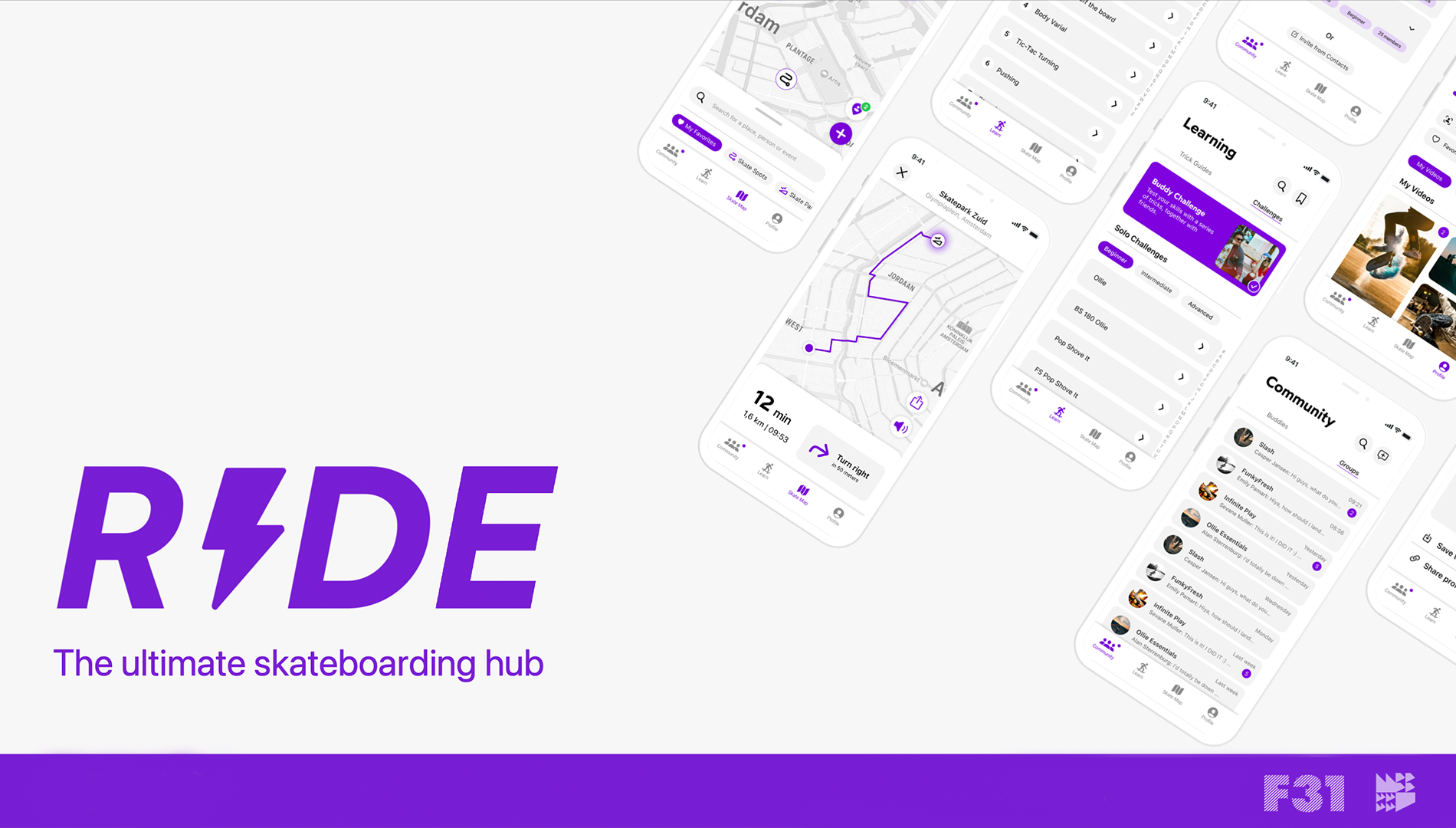
Twinshare
Showing the full potential of Digital Twins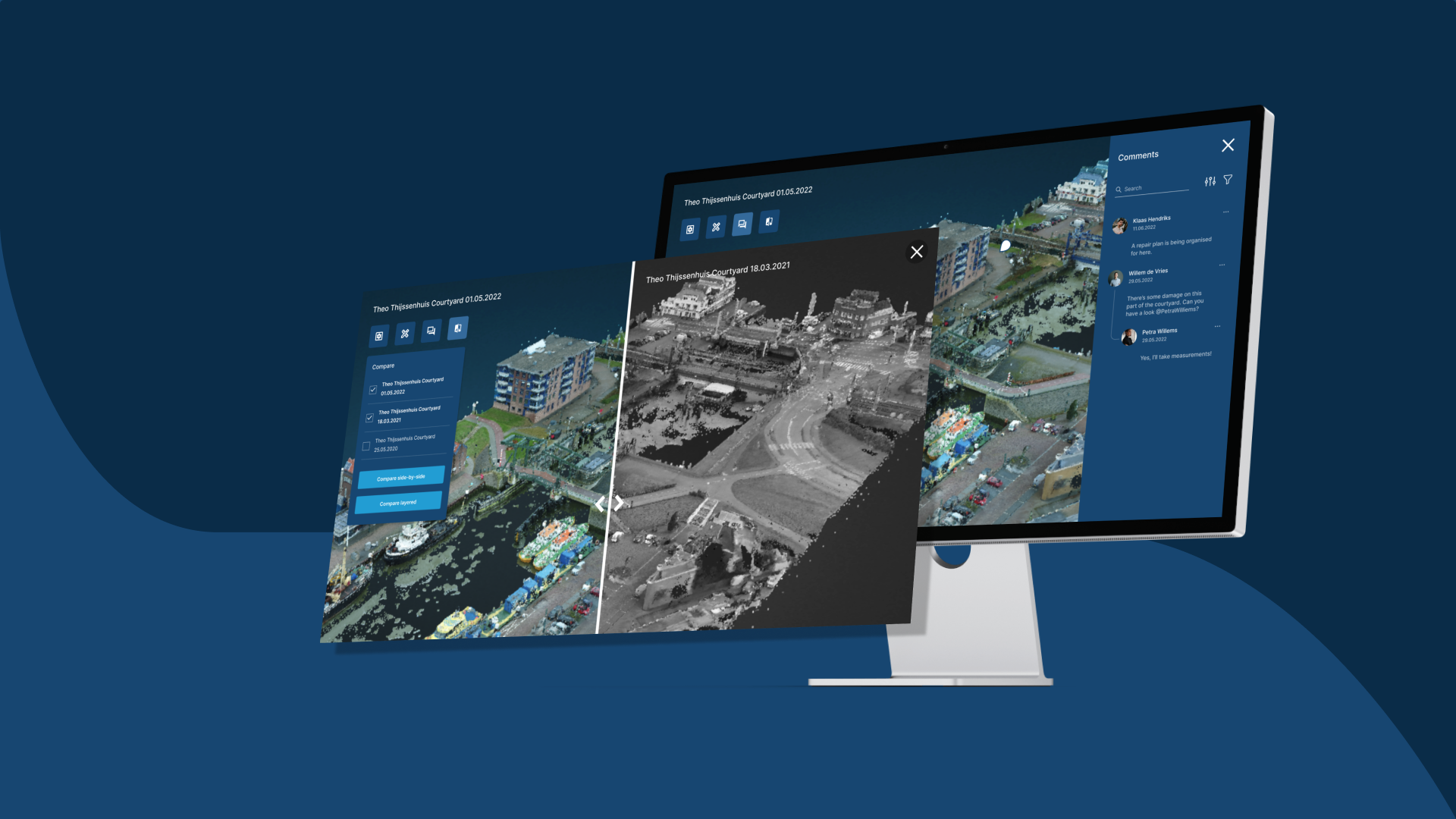
-
Client:
Sonarski
- Team:
-
Disciplines:
UX/UI, Product Design
-
Schoolyear:
2021-2022
Digital twins of public assets are 3D digital representations acquired with high-end laser technology, and used across municipalities in The Netherlands for predictive maintenance. For example, scanning a canal for two consecutive years allows maintenance project managers to quickly and precisely find any damage that has occurred in one year and repair it before the damage becomes significant and dangerous. Despite the value, digital twins are not used to their full potential due to a combination of factors like time, resources, storage and more. This project provides exhaustive research into the pains of municipalities related to the use of digital twins and a digital solution addressing them.
Research
To get a good understanding of how maintenance is currently done, whether digital twins are used and the pain points of using them, we conducted interviews with municipality maintenance project managers as well as experts in the field of digital twins. Moreover, to increase our understanding and empathy, we organized a situated action activity where we invited our client to bring the scanning technology and we went through the process of scanning a courtyard and analyzing the data. Once we had insights, we also did a competitive analysis of digital services that address the needs of parties that are in possession of digital twins.
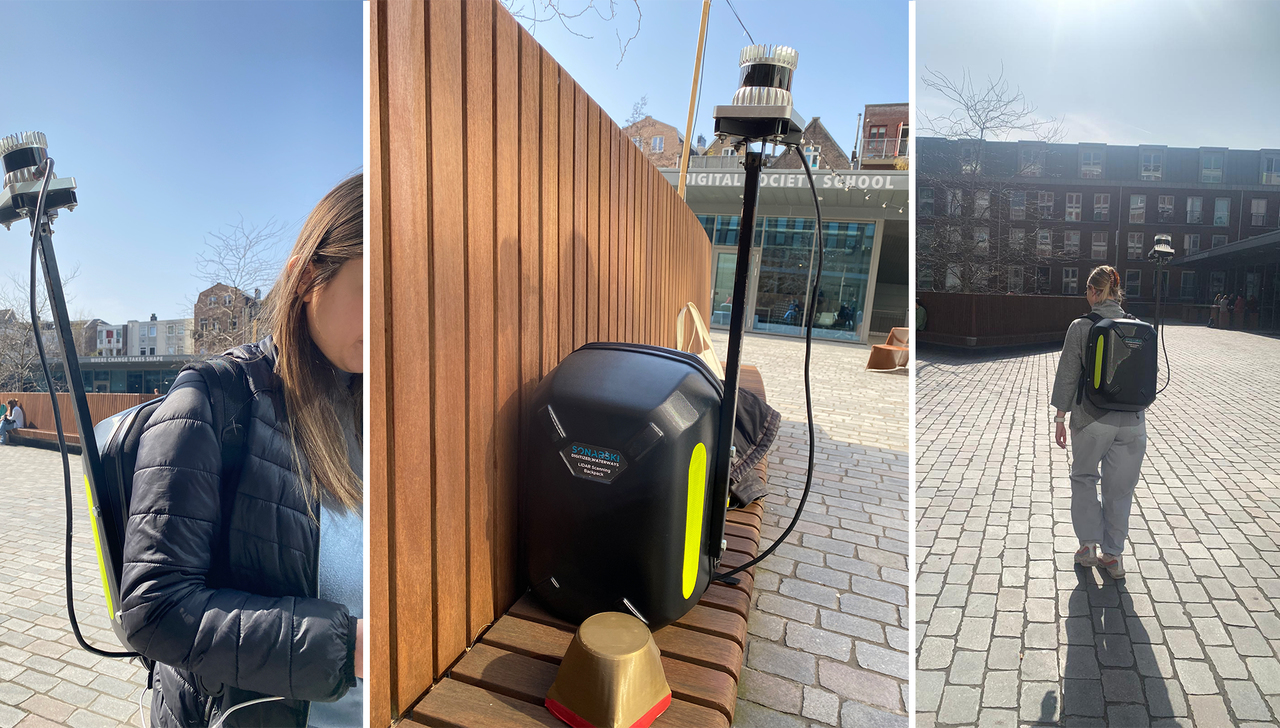
Digital twins are not used to their full potential
While municipalities are in possession of digital twins acquired for maintenance, resources are wasted since municipality departments do not share them with each other. This results in teams being sent out to inspect assets on-site, not being aware that a digital representation of the same asset has already been made by another department. Ultimately this leads to less precise inspections and preventable wasting of resources.
Lack of communication
The premise of predictive maintenance is that behaviours of assets are being monitored consistently to predict whether and what type of damage might occur. However, this information is not communicated between municipality employees, mainly because they do not have a centralized workspace dedicated for this.
Locating damage
Small damages and concerning behaviours in assets are found only by comparing an older and a newer version of a digital twin. The ability to compare two or more scans at the same time is something that municipalities lack, which hinders their analyses.
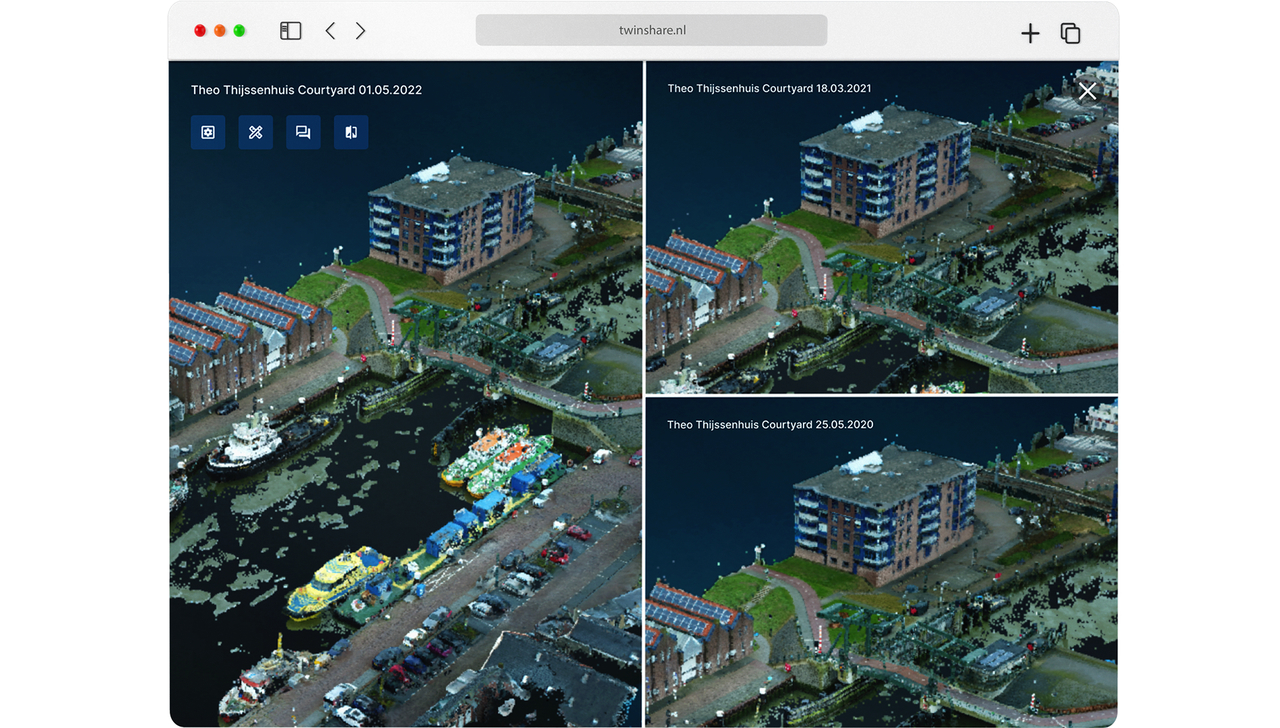
Providing a centralized platform for collaboration
After many ideation activities, we decided to further prototype a digital platform that addresses challenges in hosting, analysis, and communication. We produced a value proposition canvas to visualize how the needs and the expected gains can be addressed by such a platform. From this, we gathered all the requirements and sorted them in a value x effort prioritization canvas, to determine the features of highest importance for a minimum viable product. Testing was conducted with maintenance professionals, scanning companies, and experts in the field and the gathered insights were drivers for iteration.
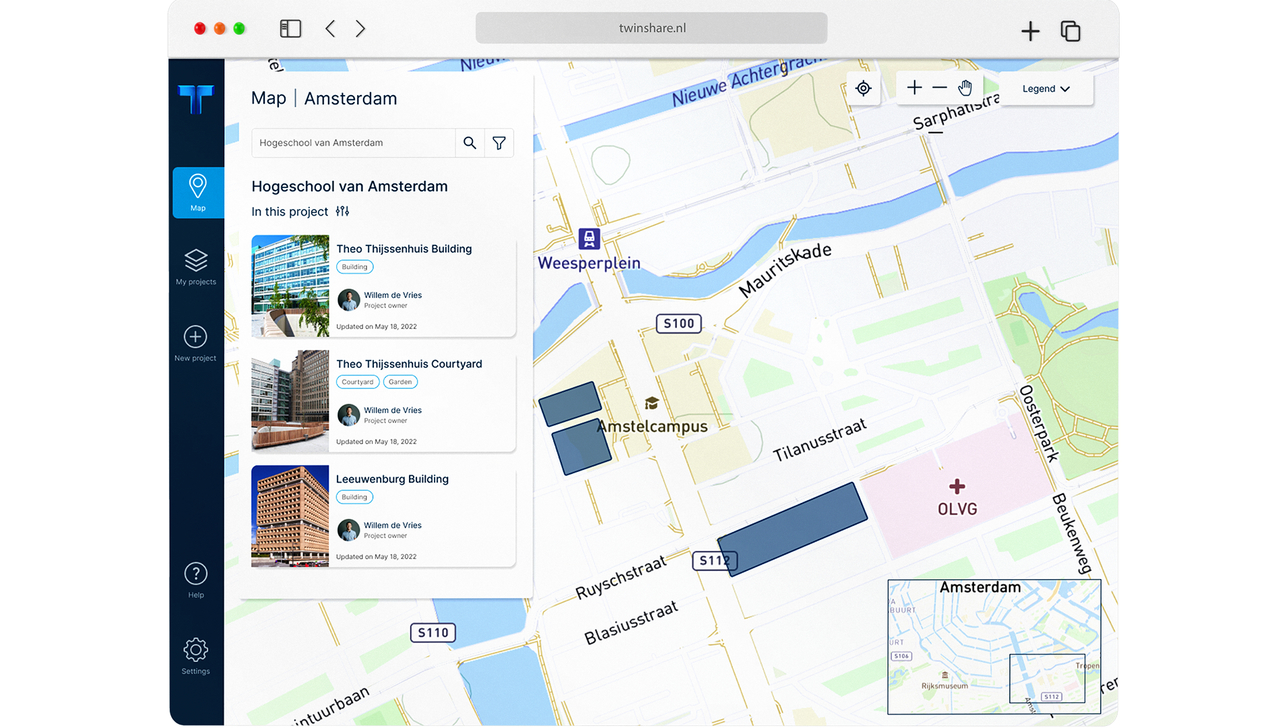
With this solution, we are decreasing the waste of resources since digital twins can now be browsed and re-used across different departments. Apart from digital twins, knowledge is also being shared, either in the form of relevant documentation or annotations directly inside the digital twins. Moreover, providing choices in how different versions are compared (side by side or overlayed) increases the flexibility of locating damage. Finally, we re-conceptualized how digital twins are uploaded by designing a two-part uploading flow, where a project manager starts the projects and inputs relevant information and finishes by providing their scanning company one-time access to upload the files and map them with the exact coordinates.


